
Everything To Know About Birthstones
From ancient legends to modern-day treasures, uncover the fascinating stories and timeless allure behind the gemstones that define each month.

The Ultimate Birthstone Guide
An Introduction to Birthstones
Birthstones have fascinated people for centuries and are believed to hold mystical powers and properties unique to each month. Understanding their history and gemological characteristics offers deeper insight into their symbolism and meaning. This guide is perfect for anyone looking to buy jewelry or simply curious about the gemstones that represent each birth month.
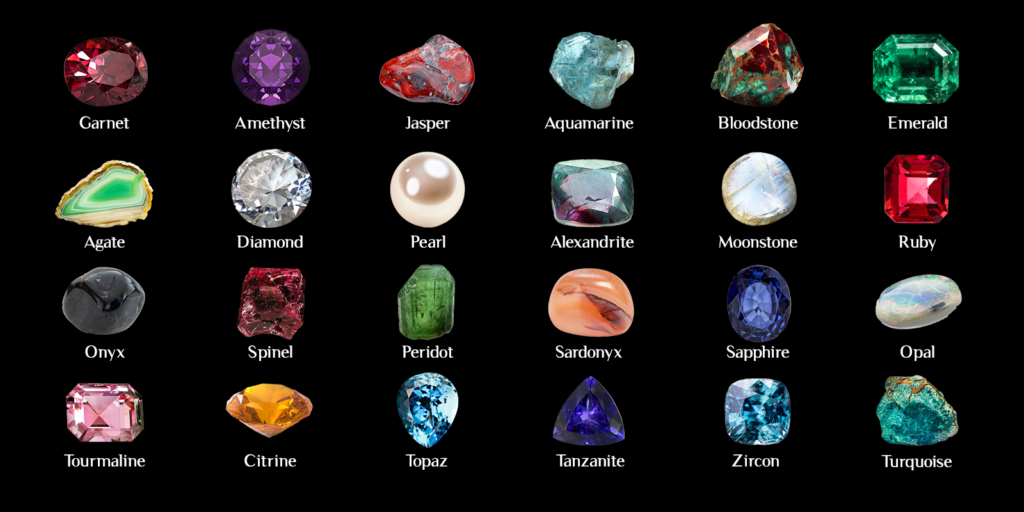
The History of Birthstones
Origins of Birthstones
The concept of birthstones has its roots in the Old Testament. Exodus describes the Breastplate of Aaron adorned with twelve jewels representing the twelve tribes of Israel. Biblical scholars later connected these twelve stones with the twelve signs of the Greco-Roman zodiac, creating the first association between gemstones and the time of year. By the eighth and ninth centuries, the stones had also become linked to the Twelve Apostles. The Church encouraged wearing a different stone each month to honor the apostles, reinforcing the connection between gemstones and the calendar months.
Evolution of Modern Birthstones
These customs shifted and evolved over the centuries, but it wasn’t until 1912 that birthstones were officially standardized. The U.S. Jewelers Association established a list designating one stone for each month. Since then, jewelers have introduced a few alternative stones, but the general list has remained largely the same.
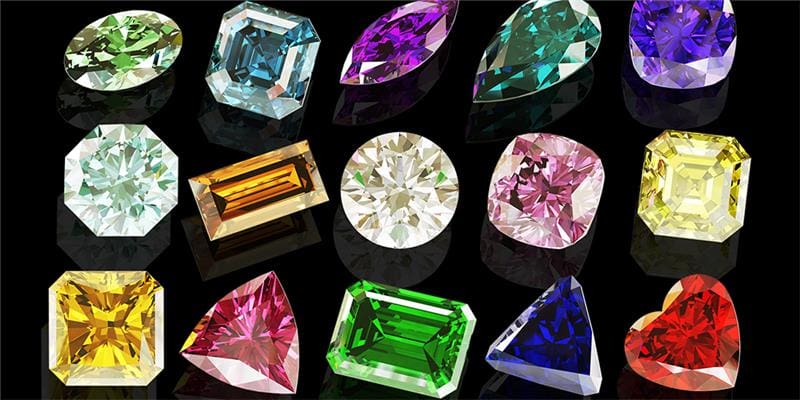

What is My Birthstone?
Comparing Each Month’s Birthstones
Curious to find out which gemstone represents your birth month? Let’s explore each one and uncover the meaning, beauty, and history behind every birthstone throughout the year.
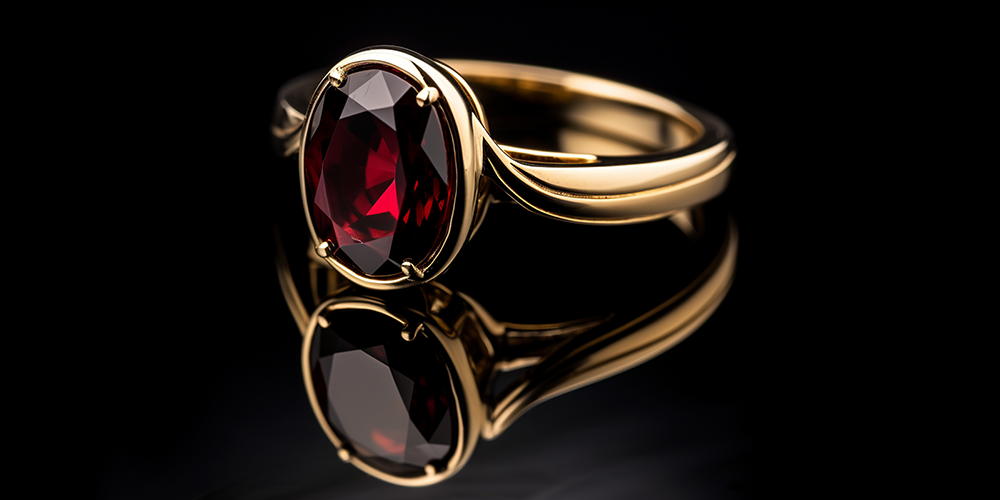
January’s Birthstone: Garnet
Garnet
Resembling the seeds of a pomegranate, the deep red Garnet represents both the modern and traditional birthstone for January. Dating back to around 3100 B.C. in Egypt, this gemstone scores between 6.5 and 7.5 on the Mohs hardness scale. Garnet is actually a group of minerals that can appear in various colors, though red is the most common.
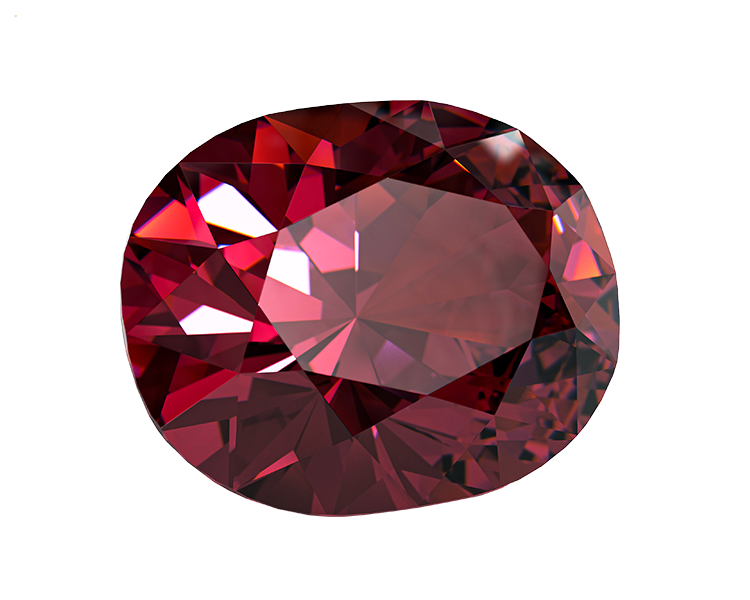
Throughout history, Garnet has been associated with numerous meanings and beliefs. In ancient times, it was thought to possess healing powers that could cure ailments of the heart and blood. Today, it symbolizes peace, health, and friendship. Interestingly, some varieties of Garnet are even used as abrasives for cutting through steel.
Learn more about the Garnet gemstone, which also represents the 2nd wedding anniversary, in our January birthstone blog!
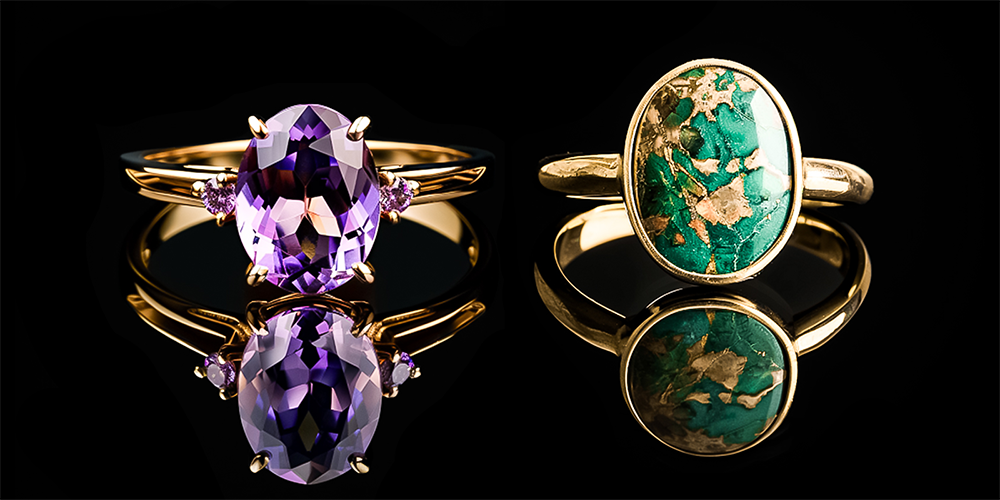
February’s Birthstones: Amethyst and Jasper
Amethyst
Amethyst is one of the birthstones for February and is a beautiful purple variety of quartz. Its name comes from the Greek word “amethystos,” meaning “not drunk,” as it was believed to prevent intoxication.
According to ancient Greek mythology, the god Dionysus was the first to discover this gemstone. Amethysts range in shades of purple, red, and blue, with their color intensity determined by the amount of iron and manganese present in the stone. Scoring a 7 on the Mohs hardness scale, Amethyst symbolizes peace, focus, and courage. The most valuable specimens display a deep purple hue with red flashes.
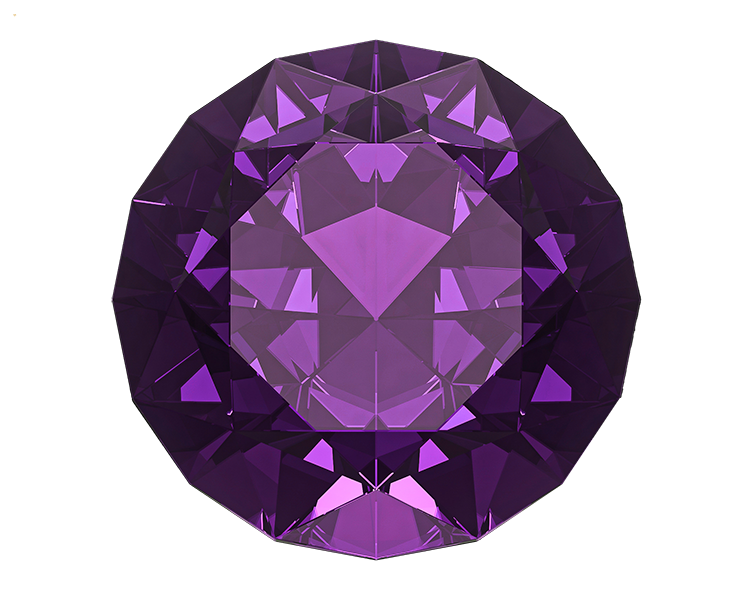
Jasper
While Amethyst is the primary birthstone for February, Jasper is another gemstone associated with this month. Its name originates from the Old French word meaning “spotted” or “speckled” stone.
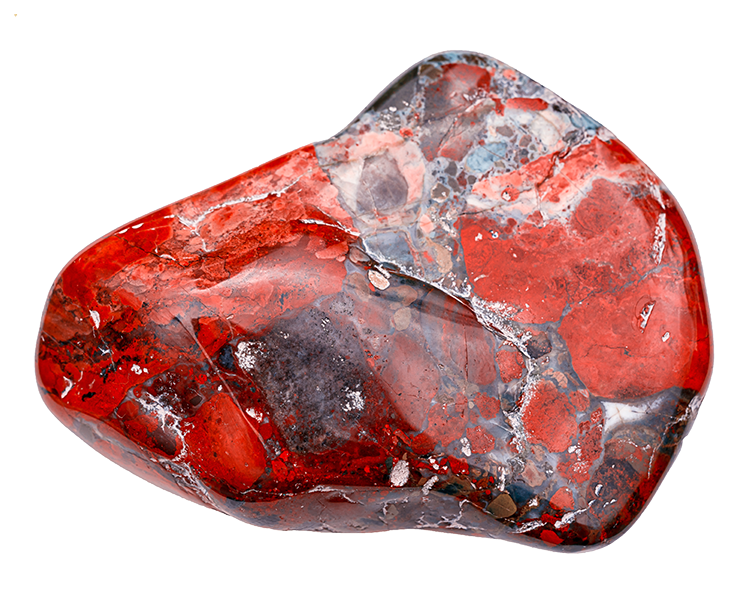
Jasper is a dense, opaque form of chalcedony found in many colors, including brown, red, yellow, green, and orange. Known as the “nurturing stone,” Jasper is believed to possess spiritual and healing properties and ranks 6.5–7 on the Mohs scale. Used in jewelry and decorative items for centuries, Jasper is found all over the world.
Learn more about the Amethyst and Jasper gemstones, which represent the 24th and 11th wedding anniversaries, respectively, in our February birthstone blog!
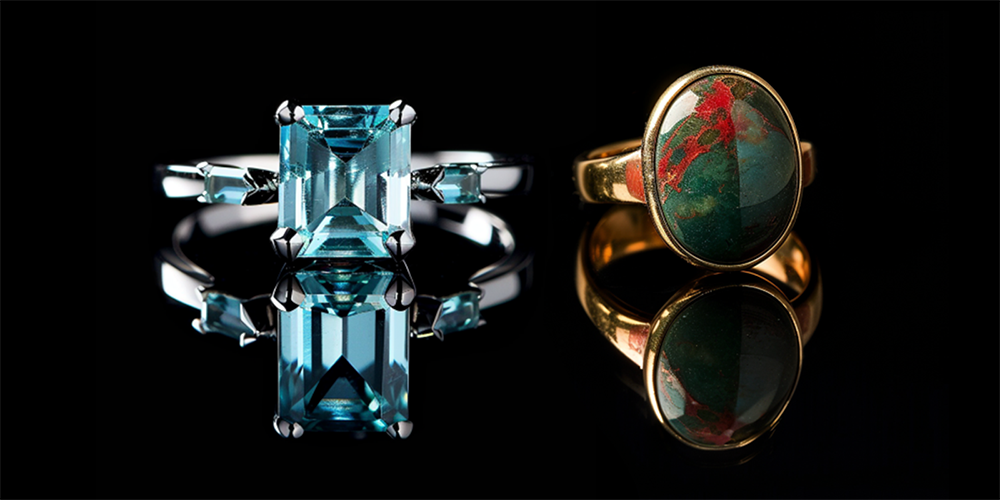
March’s Birthstones: Aquamarine and Bloodstone
Aquamarine
Aquamarine, a beautiful beryl gemstone known for its light blue to blue-green color, is one of the birthstones for March. Its name means “water of the sea” in Latin, perfectly reflecting its oceanic hues.
Valued for its clarity and transparency, Aquamarine is a popular choice for jewelry and decorative pieces. Most commonly found in Brazil, it ranks between 7.5 and 8 on the Mohs hardness scale. Throughout history, Aquamarine has been associated with protecting sailors, healing ailments, and symbolizing happiness, hope, and eternal youth. Today, it remains a cherished gemstone both for its beauty and its calming, spiritual qualities.
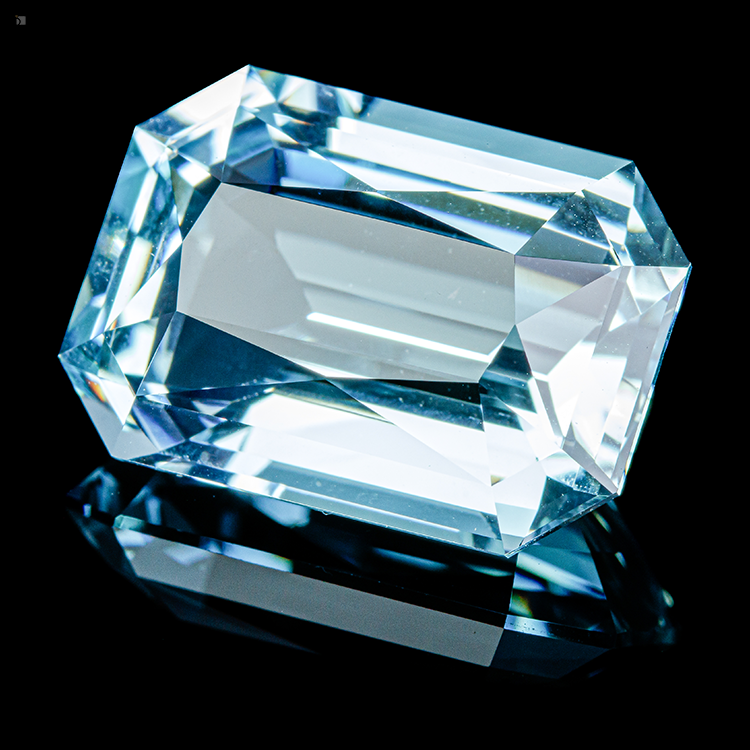
Bloodstone
Bloodstone, also known as heliotrope, is the second birthstone for March. This striking gemstone is typically dark green with red or brown speckles caused by iron oxide impurities, giving it the appearance of drops of blood.
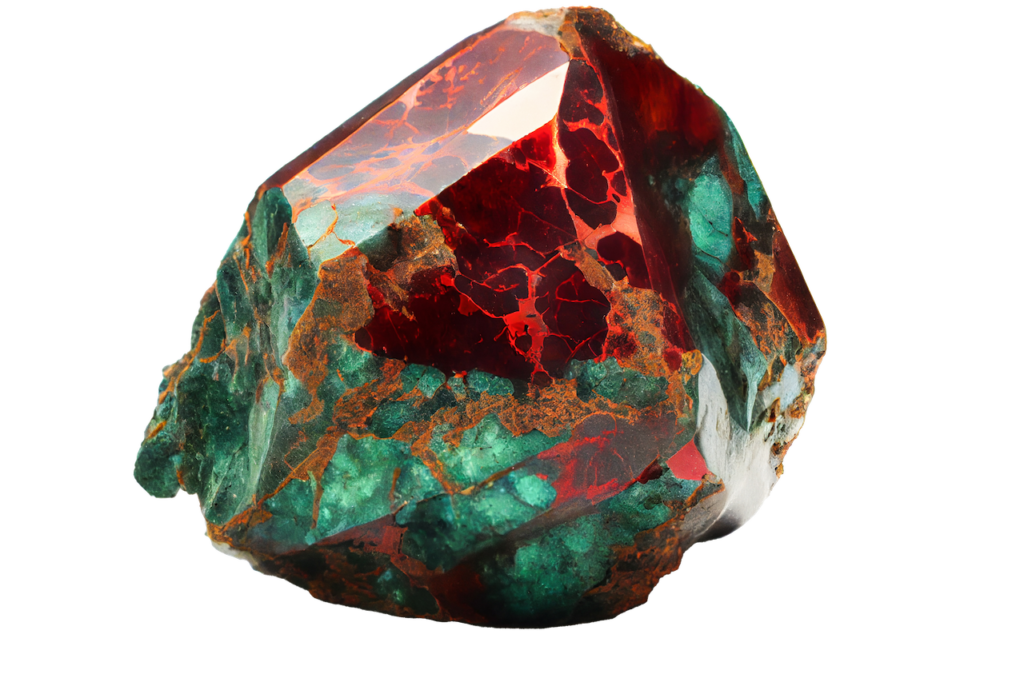
Bloodstone has long been associated with courage, strength, and vitality. In ancient folklore, it was also believed to grant clairvoyance and preserve health. Ranking a 7 on the Mohs scale, Bloodstone continues to be valued for both its unique look and symbolic energy, making it an excellent choice for jewelry or decorative pieces.
Learn more about the Aquamarine and Bloodstone gemstones, which represent the 24th and 11th wedding anniversaries, respectively, in our March birthstone blog!
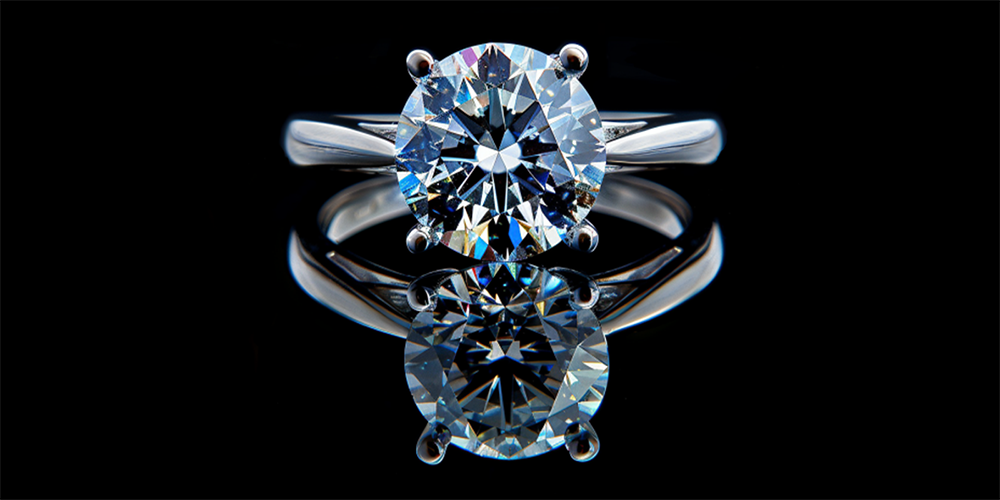
April’s Birthstone: Diamond
Diamond
The Diamond, birthstone of April, is one of the most sought-after gemstones in the world. Treasured for thousands of years, it is celebrated for its unmatched brilliance, durability, and symbolism of everlasting love. Scoring a perfect 10 on the Mohs hardness scale, the diamond is the hardest natural material known to man — only another diamond can cut it.
Formed from pure carbon deep within the Earth’s mantle, diamonds can be colorless or appear in shades of yellow, brown, pink, or blue. Their value is determined by the “Four Cs”: cut, clarity, color, and carat weight. Beyond their beauty, diamonds are also believed to enhance relationships, promote mental clarity, and inspire confidence.
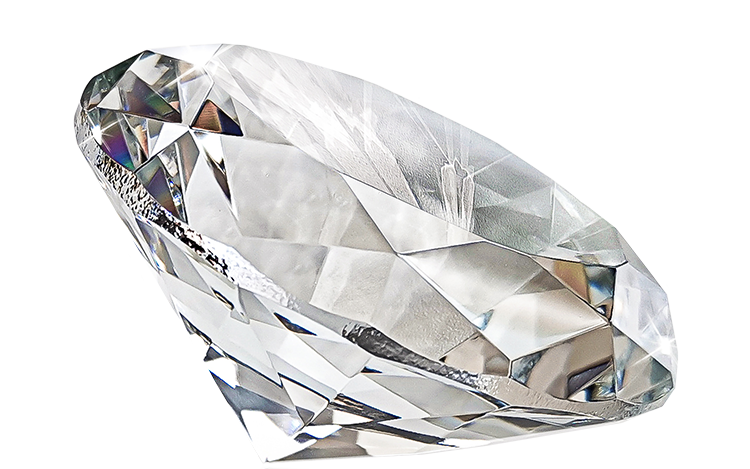
Learn more about the Diamond gemstone, which also represents the 2nd wedding anniversary, in our April birthstone blog!

May’s Birthstones: Emerald and Agate
Emerald
Emerald, one of May’s birthstones, is renowned for its rich green color and timeless allure. A variety of beryl, it ranks between 7.5 and 8 on the Mohs hardness scale and is one of the four precious gemstones, alongside diamond, ruby, and sapphire.
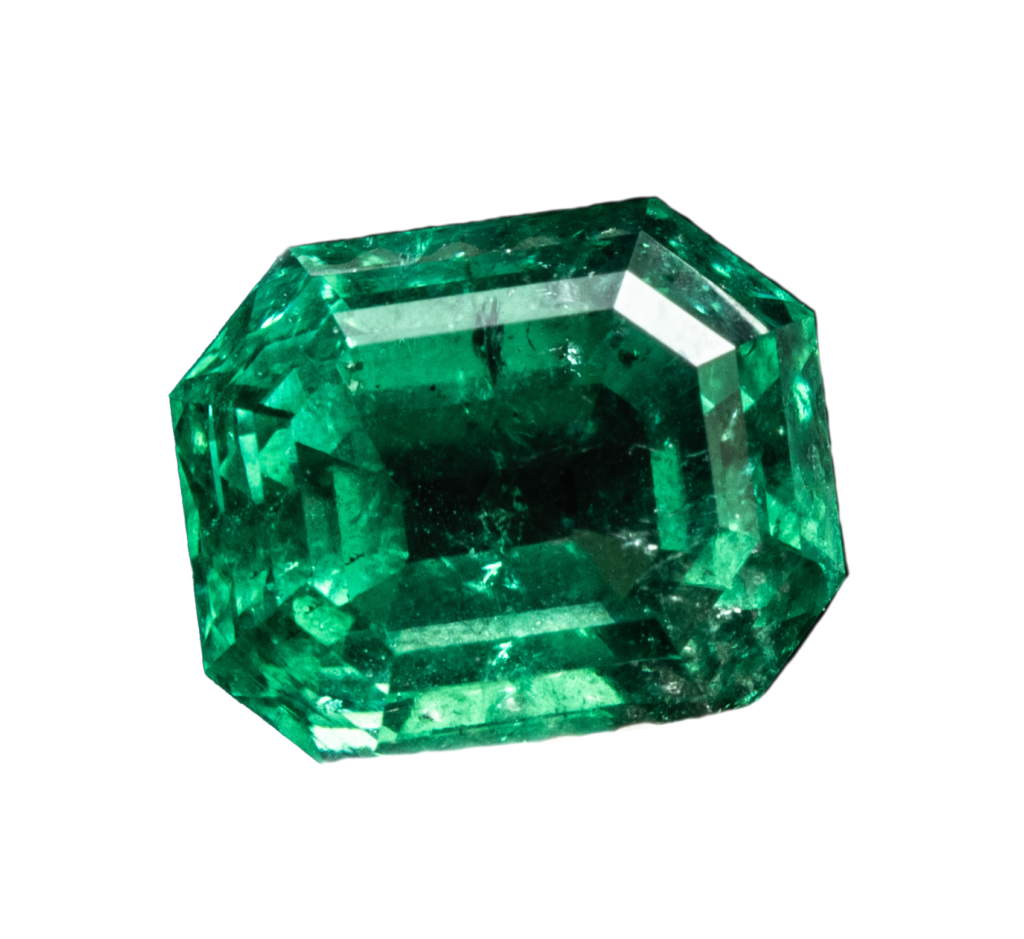
Emeralds form deep within the Earth and are commonly found in Colombia, Brazil, and Zambia. Ancient civilizations believed emeralds could bring good luck, enhance creativity, and soothe the soul — they were even said to be Cleopatra’s favorite gemstone. Today, emeralds are associated with balance, harmony, and abundance, symbolizing renewal and growth.
Agate
Agate, another birthstone for May, is a versatile gemstone that forms from layered chalcedony, a member of the quartz family.
Ranking between 6.5 and 7 on the Mohs scale, it appears in various shades of gray, white, brown, and other earthy tones. Agate has been used in jewelry and decorative art for thousands of years and remains popular today for its natural beauty and symbolic meaning. Believed to promote inner stability, strength, and balance, Agate is also said to enhance mental clarity, focus, and self-confidence.
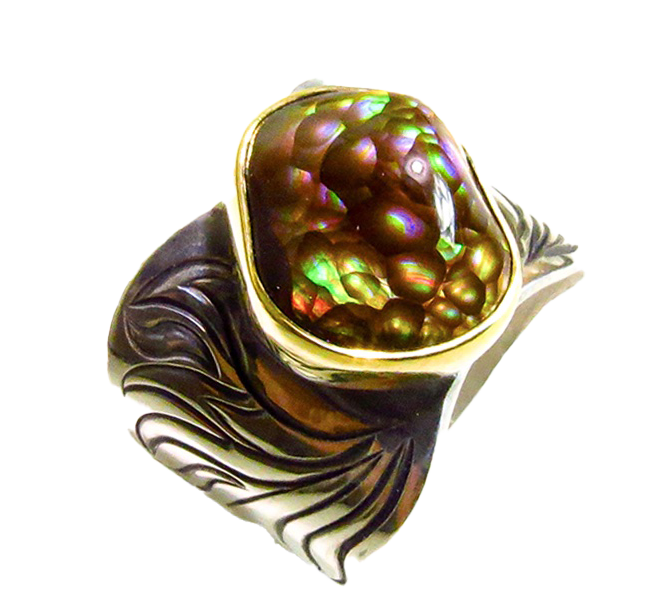
Learn more about the Emerald and Agate gemstones, which represent the 35th and 39th wedding anniversaries, respectively, in our May birthstone blog!
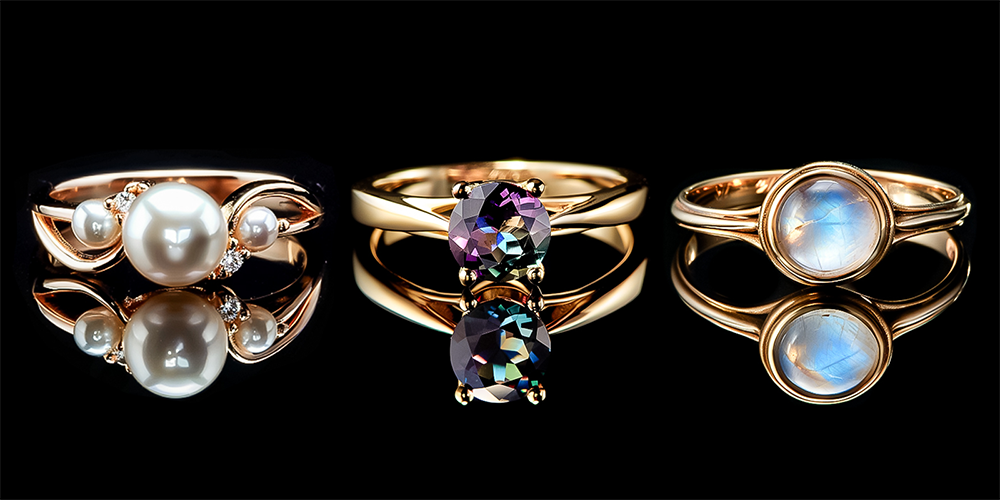
June’s Birthstones: Pearl, Alexandrite, and Moonstone
Pearl
Pearl, one of June’s birthstones, is unique among gemstones because it forms within living creatures rather than the Earth’s crust. When a mollusk secretes layers of nacre around an irritant, such as a grain of sand, a pearl is created.
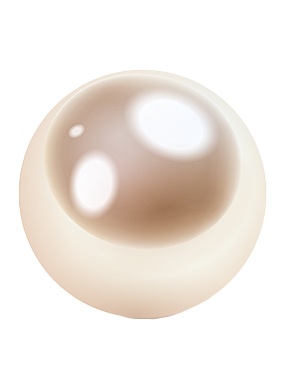
Pearls come in a variety of colors — including white, black, pink, and golden — and are prized for their luster and iridescence. Ranking only 2.5 on the Mohs hardness scale, pearls are among the most delicate gemstones and require gentle care. They are often associated with purity, innocence, and elegance and are believed to symbolize calmness, inner wisdom, and emotional balance.
Alexandrite
Alexandrite, the second birthstone for June, is a rare and remarkable gemstone celebrated for its color-changing properties. Named after Alexander II of Russia, it was discovered on the day of his birthday.
Alexandrite appears green or bluish-green in daylight and shifts to reddish-purple under incandescent light. Found in limited quantities in Russia, Sri Lanka, and Brazil, this chrysoberyl mineral ranks 8.5 on the Mohs scale. Its rarity, durability, and dramatic color shift make it a prized gem in fine jewelry. Spiritually, Alexandrite is believed to enhance intuition, inspire creativity, and bring balance between the physical and spiritual worlds.
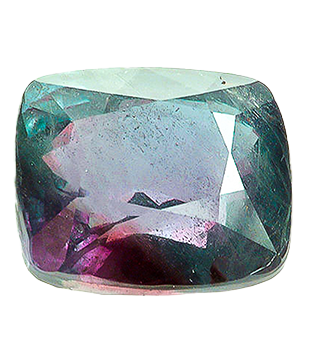
Moonstone
The third birthstone for June is Moonstone, a mystical gemstone known for its ethereal glow that resembles the light of the moon.
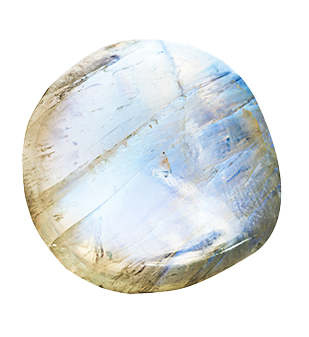
A variety of feldspar, Moonstone occurs in a range of colors and ranks 6–6.5 on the Mohs scale. Ancient civilizations associated it with lunar goddesses and believed it symbolized feminine energy, calmness, and fertility. Moonstone is thought to promote emotional balance, enhance creativity, and encourage inner growth, drawing strength from the lunar cycle itself.
Learn more about the Pearl, Alexandrite, and Moonstone gemstones, which represent the 30th, 15th and 55th, and 3rd wedding anniversaries, respectively, in our June birthstone blog!
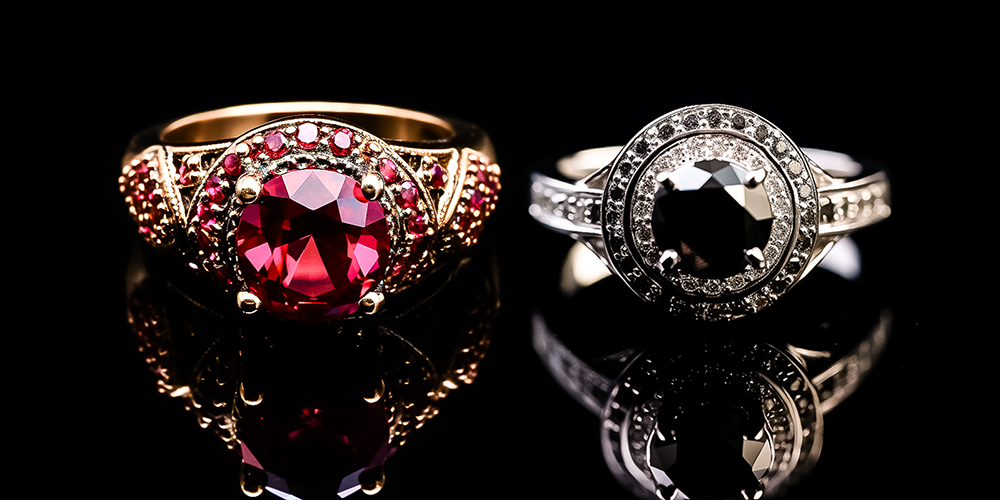
July’s Birthstone: Ruby and Onyx
Ruby
Ruby, one of July’s birthstones, is a stunning gemstone celebrated for its vivid red color. A member of the corundum mineral family, it is also one of the four precious gemstones, alongside diamond, emerald, and sapphire.
Rubies range in hue from deep red to shades with blue, pink, or purplish undertones. Like diamonds, their value is determined by color, clarity, carat weight, and cut. Ranking 9 out of 10 on the Mohs hardness scale, rubies are among the hardest gemstones after diamonds. Historically, they were believed to protect wearers from harm, bring good fortune, and symbolize love and passion. Today, rubies remain a popular choice in fine jewelry and are thought to promote vitality and self-confidence.
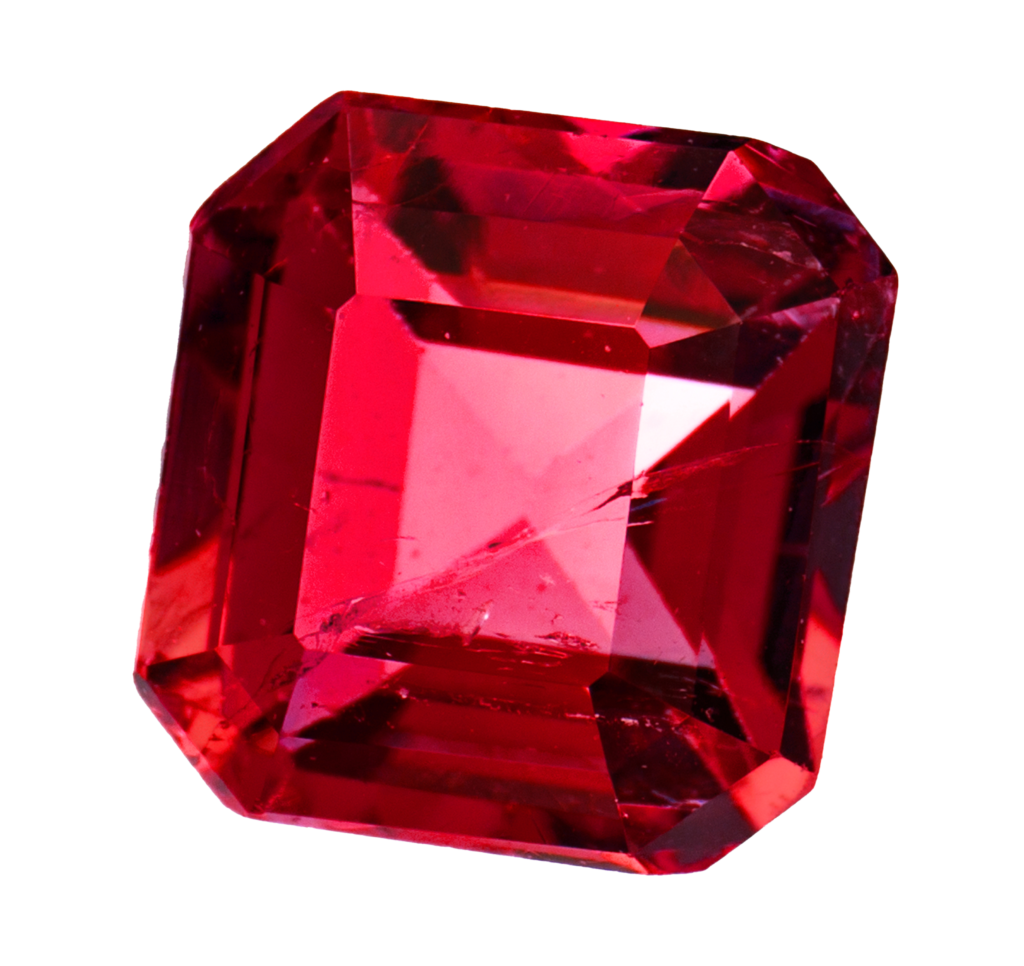
Onyx
Onyx, the second birthstone for July, is most recognized for its sleek, solid black appearance. Its name comes from the Greek word “onyx,” meaning “fingernail.”
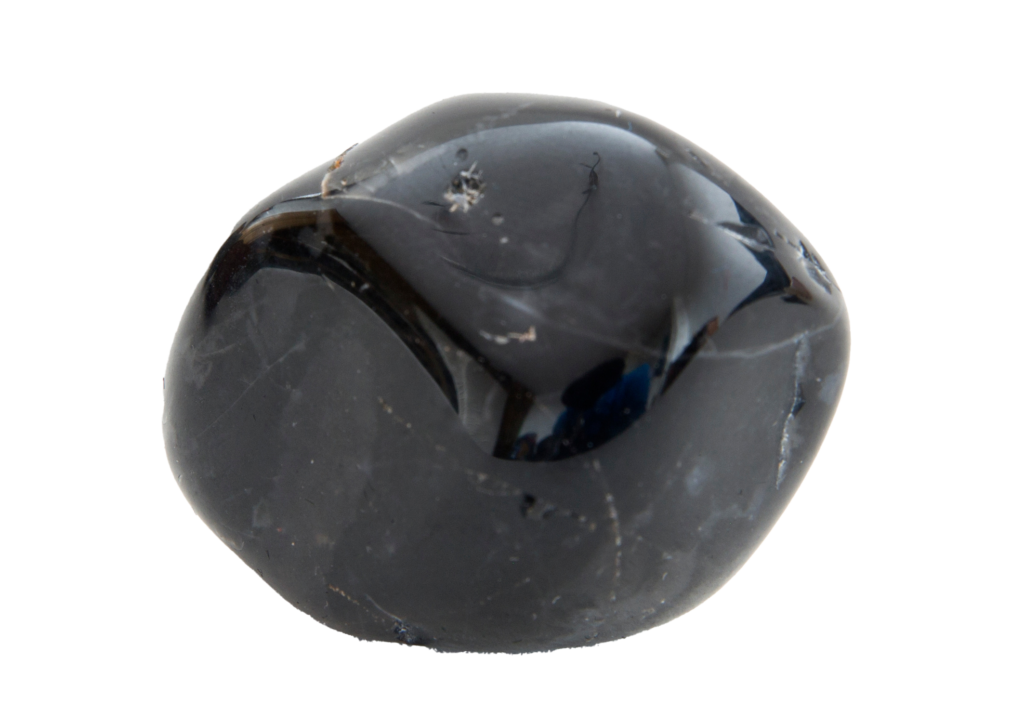
According to Greek mythology, Cupid clipped the fingernails of the goddess Venus, and the gods turned those clippings into stone — thus creating Onyx. Ranking 6.5–7 on the Mohs scale, Onyx is a variety of chalcedony found in countries such as Brazil, India, and the United States. It is believed to promote strength, focus, and protection against negative energy, as well as to help heal emotional wounds and heartbreak.
Learn more about the Ruby and Onyx gemstones, which represent the 15th and 40th, and 7th and 10th wedding anniversaries, respectively, in our July birthstone blog!
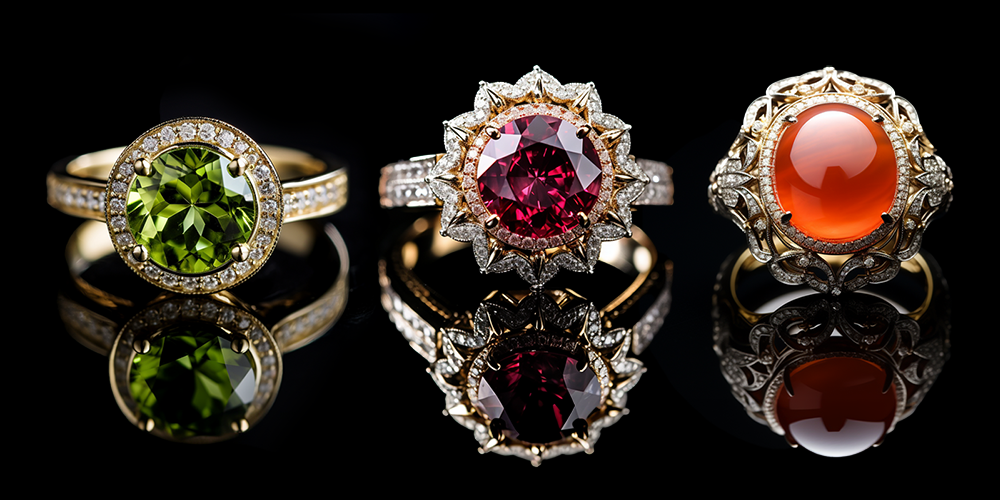
August’s Birthstones: Sardonyx, Spinel, and Peridot
Sardonyx
Sardonyx is a striking variety of chalcedony made up of alternating bands of red-brown sard and white onyx. Originally, it was the sole birthstone for August until Peridot and Spinel were later added.
Found in countries such as India, Brazil, and the United States, Sardonyx was historically believed to bring courage, strength, and protection to its wearer. It was also used for wax seals and worn as a talisman to ward off negative energy. With a hardness of 6.5 on the Mohs scale, Sardonyx is associated with promoting courage, self-control, and motivation.
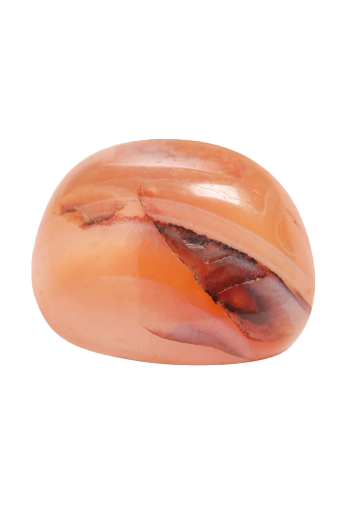
Spinel
Spinel, another August birthstone, is a vibrant gemstone that appears in nearly every color. Once mistaken for ruby and sapphire, Spinel was recognized as a distinct mineral in the late 19th century.
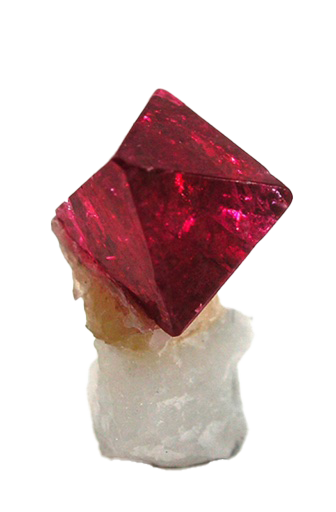
Found in Sri Lanka, Tanzania, and Myanmar, it is prized for its brilliance and durability, ranking 7.5–8 on the Mohs scale. The most valuable Spinels feature vivid red or pink hues and are often used as an affordable alternative to ruby. Spiritually, Spinel is believed to enhance vitality, encourage positive energy, and promote peace and calm.
Peridot
Peridot, the third birthstone for August, is best known for its bright green color and radiant glow. A variety of olivine minerals formed deep within the Earth’s mantle, it ranks 6.5–7 on the Mohs scale and is found in Egypt, Myanmar, and the United States.
Ancient civilizations believed Peridot could ward off evil spirits and protect against nightmares. It has also long symbolized strength, courage, and abundance. Some historians even suggest that Cleopatra’s famed “emeralds” may have actually been Peridots. Today, it is cherished for its associations with positivity, happiness, and confidence.
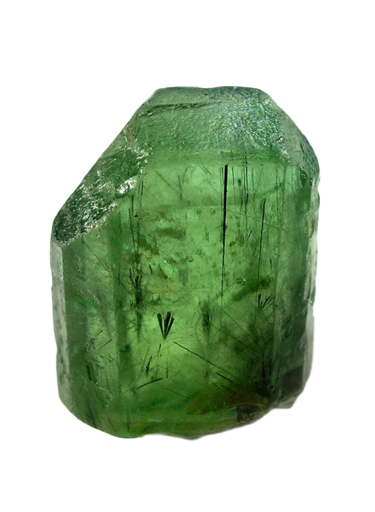
Learn more about the Peridot, green Spinel, and Sardonyx gemstones, which represent the 1st, 9th, and 44th wedding anniversaries, respectively, in our August birthstone blog!
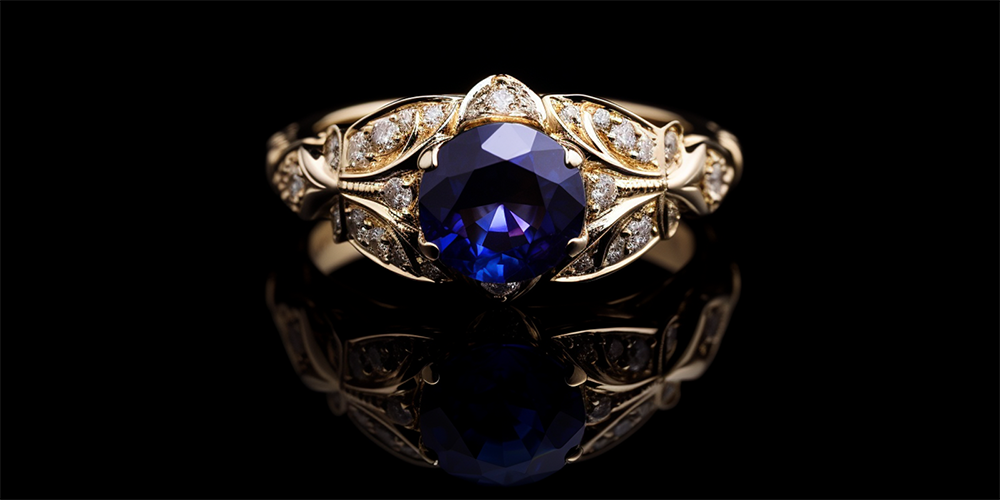
September’s Birthstone: Sapphire
Sapphire
Sapphire is the birthstone for September and is best known for its deep, rich blue hue, though it can also appear in pink, yellow, and green varieties. A form of the mineral corundum, Sapphire forms deep within the Earth’s crust under intense pressure and heat.
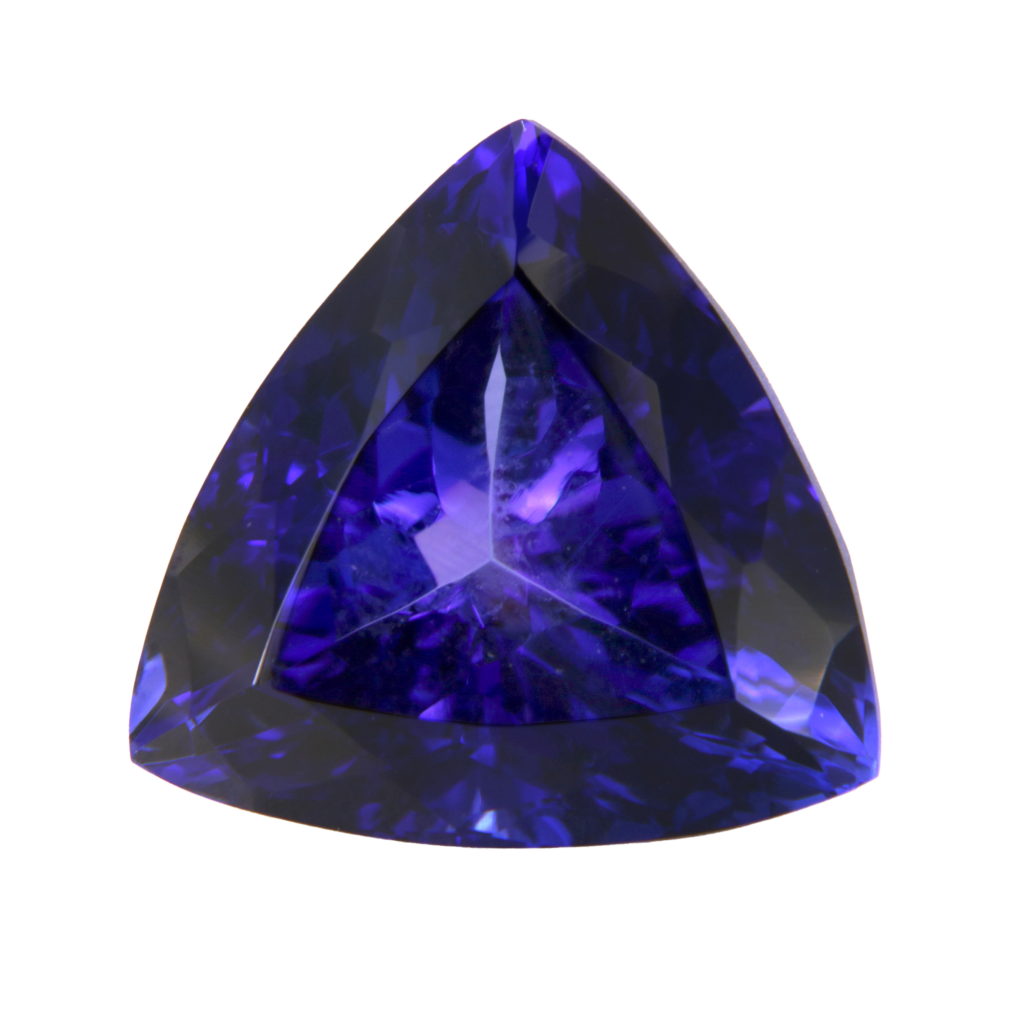
It is one of the four precious gemstones and among the hardest, ranking 9 out of 10 on the Mohs hardness scale. Throughout history, Sapphires have symbolized power, wisdom, and royalty — most famously seen in Princess Diana’s iconic sapphire engagement ring. Spiritually, this gemstone is believed to promote peace, clarity, and emotional balance.
Learn more about the Sapphire gemstone, which represents the 5th and 45th wedding anniversaries, in our September birthstone blog!
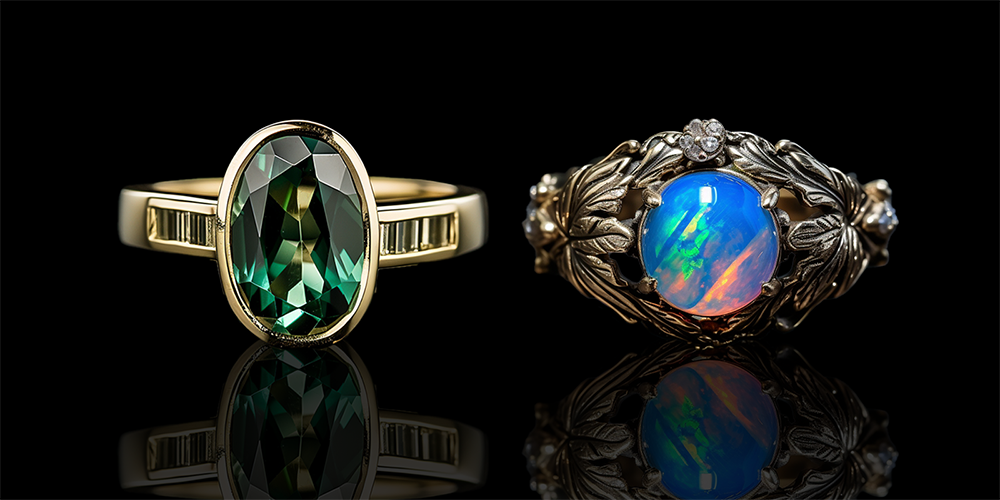
October’s Birthstones: Opal and Tourmaline
Opal
Opal, one of October’s birthstones, is a unique gemstone highly valued for its mesmerizing iridescence. Formed from silica, it is most commonly found in Australia, Ethiopia, and Mexico. Opals display a wide range of colors—from milky white to black—and often feature flashes of red, orange, and green.
Ranking between 5 and 6.5 on the Mohs hardness scale, the most prized opals are those with bright, vivid hues, often referred to as “fire.” Throughout history, various cultures have attributed special powers to Opal, believing it could bring good luck, protect against harm, and symbolize hope and purity. Today, it is also thought to promote creativity, spontaneity, and emotional healing.
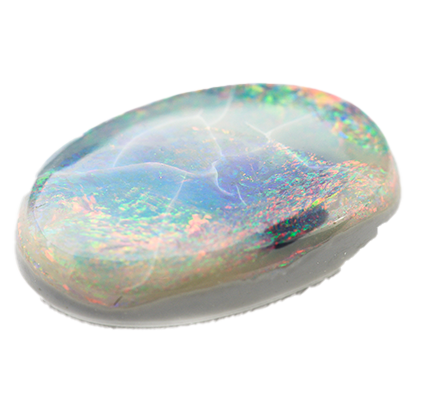
Tourmaline
Tourmaline, the second birthstone for October, is a versatile gemstone found in a wide array of colors, formed from aluminum, boron, and silicon. Significant deposits exist in Brazil, Sri Lanka, and East Africa.
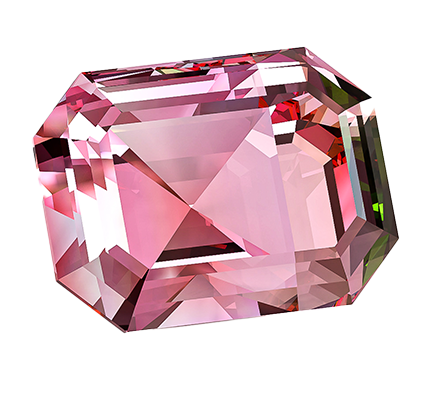
Tourmaline can appear in shades of pink, green, blue, yellow, and black, with some stones displaying multiple hues. One notable variety, Watermelon Tourmaline, exhibits green and reddish-pink tones resembling the fruit it’s named after. Known for its unique optical properties, Tourmaline can even become electrically charged when heated or rubbed. Ranking 7–7.5 on the Mohs scale, it is believed to enhance self-confidence, creativity, health, and emotional protection.
Learn more about the Opal and Tourmaline gemstones, which represent the 14th and 8th wedding anniversaries, respectively, in our October birthstone blog!
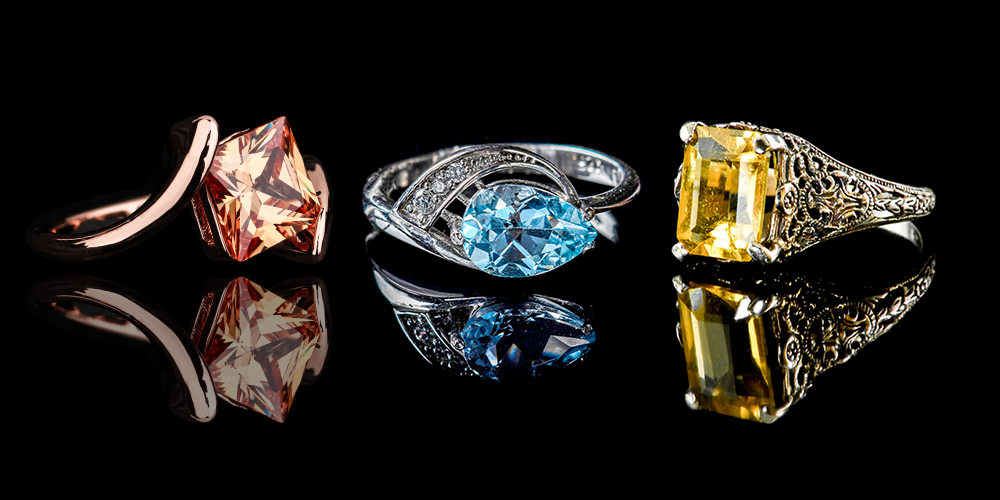
November’s Birthstones: Topaz and Citrine
Topaz
Topaz, the first birthstone for November, is a stunning gemstone found in a variety of colors, including yellow, orange, pink, blue, and brown.
Formed deep within the Earth’s crust under intense heat and pressure, Topaz is discovered worldwide, with significant deposits in Utah, USA. It is among the most durable gemstones, ranking 8 out of 10 on the Mohs hardness scale. Throughout history, Topaz has been associated with strength, healing, and good fortune. Fun fact: the largest faceted gemstone ever discovered is the “El Dorado Topaz,” weighing an incredible 31,000 carats.
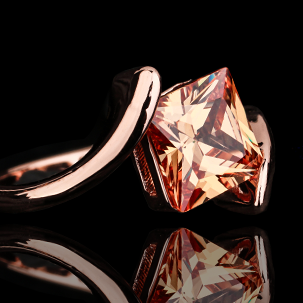
Citrine
Citrine, the second birthstone for November, is admired for its warm golden hues that range from pale yellow to deep orange.
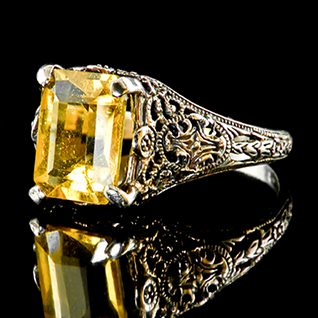
A variety of quartz, it is the second most abundant mineral on Earth and is found in Brazil, Madagascar, and the United States. Ranking 7 on the Mohs scale, Citrine gained immense popularity in the 1920s and 1930s after actress Greta Garbo was revealed to have a notable collection of Citrine jewelry. Known as the “money stone” in ancient times, Citrine symbolizes positivity, abundance, and creativity and was believed to attract wealth and success.
Learn more about the blue Topaz and Citrine gemstones, which represent the 4th and 13th wedding anniversaries, respectively, in our November birthstone blog!
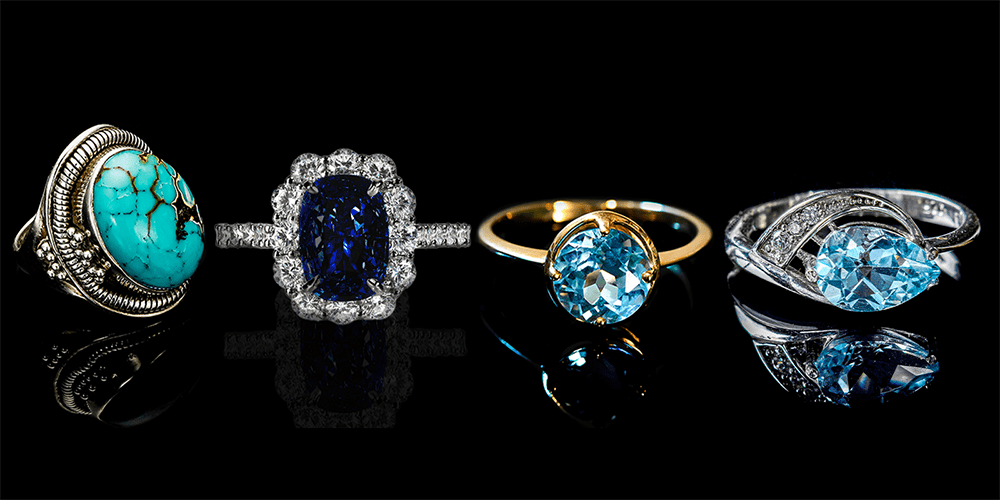
December’s Birthstones: Tanzanite, Zircon, Turquoise, and Blue Topaz
Tanzanite
Tanzanite, one of December’s birthstones, is a rare and highly valued gemstone first discovered in Tanzania in the 1960s. A variety of the zoisite mineral family, it is known for its striking blue-violet color that ranges from pale lavender to deep purple.
Found only in the Mererani Hills of northern Tanzania, Tanzanite derives its name from its country of origin. Due to its limited supply and increasing demand, it is considered one of the world’s rarest gemstones. Tanzanite is believed to promote wisdom, insight, and spiritual enlightenment. Ranking between 6 and 7 on the Mohs scale, it remains a popular choice for engagement rings and other fine jewelry pieces.
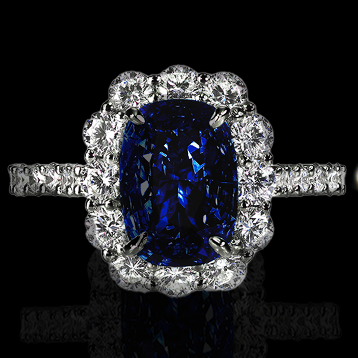
Turquoise
Turquoise, another December birthstone, is a beautiful blue-green gemstone and the traditional birthstone for this month. It ranks between 5 and 6 on the Mohs hardness scale and forms in arid regions, primarily in the southwestern United States, Mexico, and Iran.
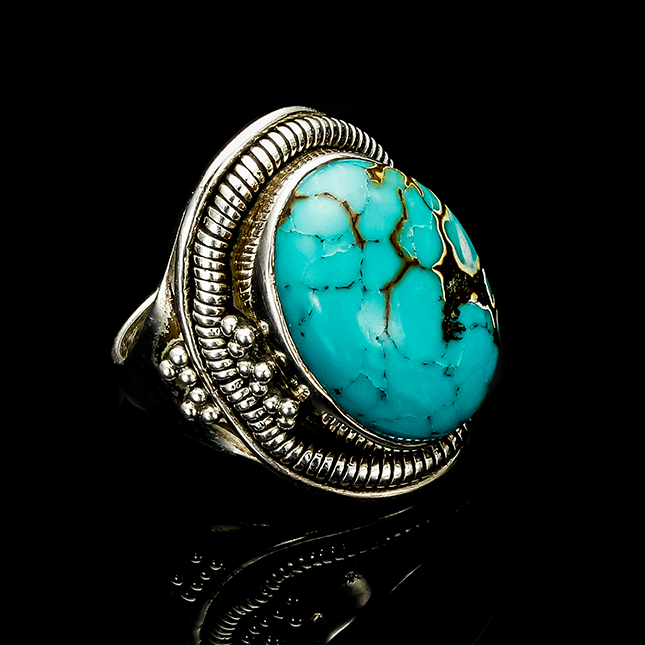
Interestingly, the color “turquoise” was named after the gemstone itself. The vein-like markings found on some stones, known as the “matrix,” can affect their value. Revered by many cultures, Turquoise was used by ancient Egyptians to adorn royal tombs and by Native American tribes as a symbol of protection, healing, and good fortune.
Zircon
The third December birthstone, Zircon, is a brilliant gemstone that comes in a variety of colors, including blue, brown, and yellow. It forms through the crystallization of magma and is commonly found in Sri Lanka, Cambodia, and Madagascar.
Ranking between 6 and 7.5 on the Mohs scale, Zircon is admired for its exceptional brilliance and fire, often rivaling that of a diamond. In the Middle Ages, it was believed to ward off evil spirits, bring honor, and encourage wisdom. Remarkably, traces of Zircon have been found in lunar rocks and even believed to exist on the sun.
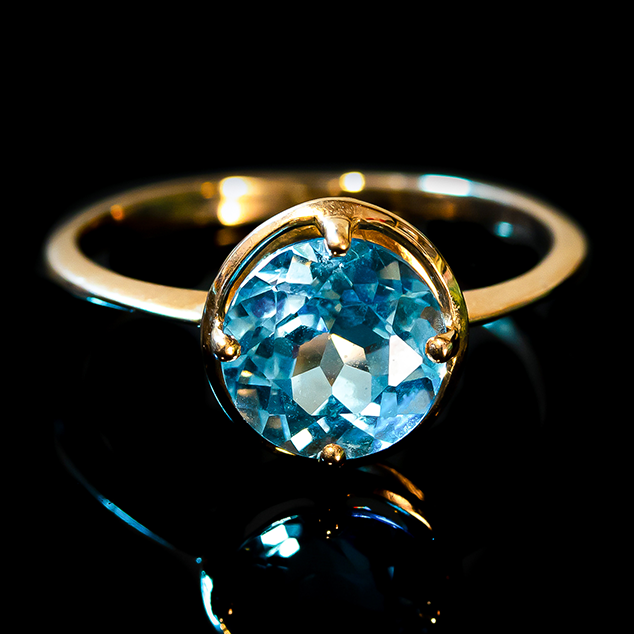
Blue Topaz
Blue Topaz, the fourth December birthstone, is cherished for its icy blue brilliance and calming energy. It forms deep within the Earth’s crust under high heat and pressure and ranks 8 on the Mohs hardness scale, making it one of the more durable gemstones.
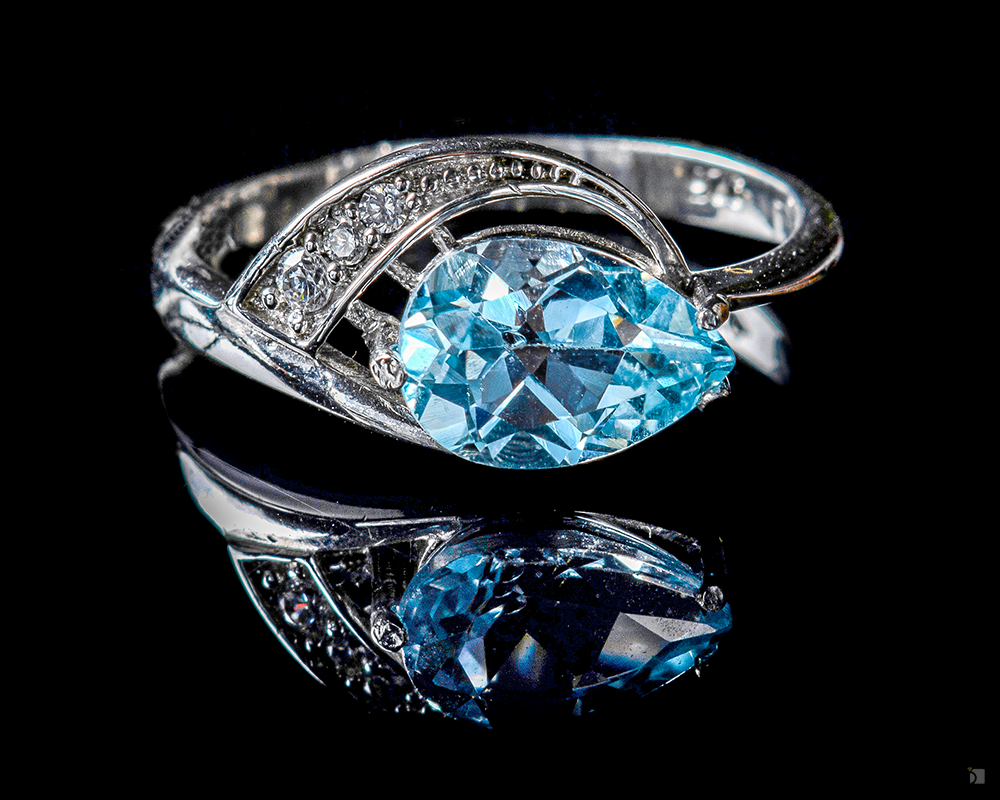
Blue Topaz is commonly found in Brazil, Sri Lanka, and Nigeria, and its cool, serene hue symbolizes clarity, communication, and emotional balance. Spiritually, it is said to promote truth, wisdom, and peaceful energy, making it a meaningful choice for jewelry that celebrates calm and connection.
Learn more about the Tanzanite, Turquoise, Zircon, and Blue Topaz gemstones, which represent the 24th, 11th, 4th, and 19th wedding anniversaries, respectively, in our December birthstone blog!

From the Earth to Your Jewelry Box
My Jewelry Repair Can Make It Shine
Every gemstone tells a story shaped by the Earth and cherished through time. At My Jewelry Repair, our Master Jewelers specialize in restoring and replacing gemstones with expert precision, bringing new life to birthstone rings, heirloom pieces, and sentimental treasures alike.
With professional stone sourcing, setting, and polishing, our team blends artistry with advanced technology to preserve each piece’s brilliance and meaning. All repairs are completed in our state-of-the-art facilities and delivered nationwide through our secure mail-in service—because your jewelry deserves to shine as brightly as the memories it holds.
We have a variety of options in our catalog of gemstone services including:
Interested in Our Gemstone Services?
Our team has gemologists certified by

We are proud members of the

